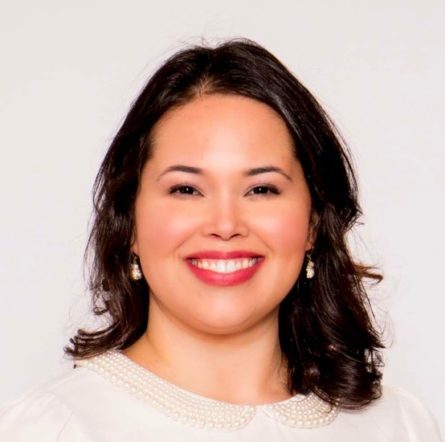Michelle Seijas is the Oakland Executive Director of Surge Institute, whose mission is to educate and develop leaders of color who create transformative change in urban education.
In my conversation with Michelle, a common theme emerged. Though talented and smart, “other people saw things in me I didn’t see in myself and encouraged me-telling me this is something you can do,” Michelle recalled when new leadership positions became open. Over time, with a growing sense of confidence and support from mentors, Michelle would seize opportunities and take on leadership positions to increase education equity.
Michelle grew up in California’s Central Valley. When she began school, she didn’t speak English and was thrown into a new environment where Spanish was not deemed an important language to speak. Early on she was identified as gifted, and she was bused to a different school with mostly wealthier, white students. While the only Latina in class, she thrived being in an environment that had project-based learning and a focus on going to college. Once at UC Davis, Michelle quickly realized that other students of color often didn’t have the positive educational experience that she did. She knew that she wanted to change this reality for other students of color. College was also a time where she was exposed to ethnic studies, and she was able to immerse herself in new scholarship. She graduated with a major in Spanish and minor in education.
After college, Michelle completed the Bilingual Multicultural Education Program at California State University, Sacramento and became a bilingual teacher. While teaching, she was mentored by a Latina principal who told her that she too could become a principal. That principal was not the first or only mentor in Michelle’s life.
Michelle’s grandmother, Flora, was one of the first people to influence her life. Flora came to the United States pregnant with Michelle’s mom, escaping domestic violence. She helped found a community clinic, Golden Valley Health Centers in the Central Valley. She also worked in local schools. Michelle recalls her grandmother as, “the epitome of a chingona”.
There were other mentors in Michelle’s life, including an Assistant Superintendent and Director of English Language Learners. While working on a project with the Assistant Superintendent, she urged Michelle to reconsider her calling to work in high schools, since she was an elementary school teacher. That was the push she needed to apply for a high school leadership role. Eventually, she became a high school vice principal. It was during her monthly brunches with another mentor that Michelle was encouraged to apply for the open principal position at her school. Michelle landed the position. She became a high school principal, and in her five-year tenure, suspensions dropped, test scores went up, and she built relationships and supported other educational leaders who have also gone on to higher leadership roles.
During this time, Michelle completed the HOPE (Hispanas Organized for Political Equity) Leadership Institute. In one of the sessions, she was asked to describe her most audacious goal. Michelle stood up and said she was going to be Dr. Seijas. A colleague had been encouraging her to apply to the doctoral program in Educational Leadership program at UC Davis. Michelle finally attended an information session and was dismayed when she walked into a room of all white men. She knew more that Latinas needed to earn their doctorate degrees. She not only applied, but called other friends and convinced them to do the program with her. In the end, her cohort was one-third students of color.
She graduated with her Ed.D. and is now Dr. Seijas. Michelle recalls with fondness a picture she has of her and her 3-year-old niece. The picture is taken from behind and you see the two holding hand, her niece wearing her graduation cap. Everytime Michelle looks at that picture, she knows her niece can now imagine herself with a doctorate. These are the kind of dreams that role models and mentors can seed in others.
Today, Michelle knows that she needs less convincing when opportunities come about. She is aware of her strengths, weaknesses, and values. Some parts of the journey are scary, but she steps into the fear anyway. She trusts herself and knows that she can figure anything out. When she saw the position to be the first Oakland Executive Director of the Surge Institute, without hesitation, she applied. In her new role, Michelle is launching the first Oakland cohort of the Surge Fellowship Program. The focus of the fellowship is to educate and develop leaders of color who create transformative change in urban education, which is goal that is near and dear to Michelle’s life purpose.
While she isn’t sure what comes next and where life will lead her, Michelle knows she will be able to figure it out when she gets there!

